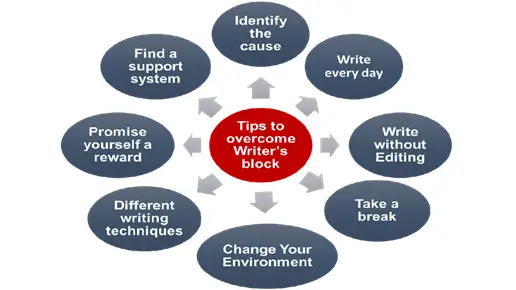How to Handle Writer’s Block During Research Projects
Writer’s block is an all-too-common obstacle for students working on research projects. The pressure to produce high-quality work, meet deadlines, and navigate complex topics can sometimes leave you staring at a blank page. However, writer’s block doesn’t have to derail your progress. By understanding the causes and adopting practical strategies, you can overcome writer’s block and stay productive. This article explores effective techniques to handle writer’s block during research projects, along with how online assignment help services can support your journey.
What Causes Writer’s Block?
Understanding the root of writer’s block is the first step toward overcoming it. Common causes include:
- Perfectionism: A desire to write flawlessly from the start can create mental barriers.
- Stress and Anxiety: Tight deadlines or challenging topics can trigger stress, leading to creative blocks.
- Lack of Clarity: Unclear ideas or poorly defined research questions can make it hard to start writing.
- Fatigue: Overworking without breaks can reduce mental energy and creativity.
- Distractions: External interruptions or internal preoccupations can hinder focus.
Identifying your specific triggers allows you to address them directly.

Practical Tips to Overcome Writer’s Block
1. Break Down the Task
Facing a large project can be overwhelming. Break it into smaller, manageable steps to make it less intimidating.
Example:
- Outline your main sections (introduction, literature review, methodology, etc.).
- Focus on one section at a time, starting with the easiest.
Progress on even a small task can boost your confidence and momentum.
2. Set Achievable Goals
Unrealistic expectations can worsen writer’s block. Set specific, attainable goals for each writing session.
SMART Goals:
- Write 200 words for the introduction.
- Revise one section of your paper.
- Complete a draft of the abstract.
Small wins add up and help you stay motivated.
3. Develop a Writing Routine
Establishing a consistent routine trains your brain to write at specific times, reducing procrastination.
Tips for Creating a Routine:
- Choose a distraction-free time and space.
- Dedicate short writing blocks (e.g., 25 minutes with a 5-minute break).
- Use productivity tools like the Pomodoro Technique to stay on track.
A routine turns writing into a habit, making it easier to overcome blocks.
4. Freewrite to Unlock Ideas
Freewriting is a powerful tool for overcoming writer’s block. Write continuously without worrying about grammar, structure, or coherence.
How to Freewrite:
- Set a timer for 10-15 minutes.
- Write down everything that comes to mind about your topic.
- Review your freewrite to identify useful ideas or phrases.
Freewriting clears mental clutter and uncovers hidden insights.
5. Revisit Your Research
Sometimes, writer’s block stems from insufficient understanding of your topic. Reviewing your research can spark new ideas.
Steps to Deepen Understanding:
- Re-read key sources or notes.
- Explore additional articles, books, or case studies.
- Discuss your topic with peers or mentors for fresh perspectives.
Strengthening your knowledge provides clarity and confidence to write effectively.
6. Start in the Middle
If the introduction feels daunting, skip it and start with a section you find easier, such as the methodology or results.
Benefits:
- Builds momentum by focusing on familiar content.
- Helps clarify your thoughts for writing other sections later.
Remember, the introduction can be revised once the main content is complete.
7. Use Writing Prompts
When you’re stuck, writing prompts can help kickstart your creativity.
Examples for Research Projects:
- Summarize your research question in one sentence.
- Describe the significance of your study in a paragraph.
- List three key findings and their implications.
Prompts encourage you to write without overthinking, easing the block.
8. Take Breaks to Refresh Your Mind
Continuous effort without rest can exhaust your mental energy, making writer’s block worse.
Effective Break Ideas:
- Go for a walk to clear your head.
- Practice mindfulness or meditation.
- Engage in a creative activity unrelated to writing.
Returning to your work with a fresh perspective often sparks new ideas.
9. Seek Feedback
Collaborating with peers, mentors, or assignment help services can provide valuable insights and motivation.
How Feedback Helps:
- Identifies areas for improvement.
- Validates your progress.
- Offers suggestions to refine your work.
Sharing drafts early in the process prevents stagnation and builds confidence.
10. Use Online Assignment Help Services
When writer’s block persists, online assignment help services can be invaluable.
Benefits of Assignment Help Services:
- Expert Guidance: Receive support from professionals with subject-specific expertise.
- Editing and Proofreading: Ensure your work is polished and error-free.
- Customized Resources: Access templates, outlines, and examples tailored to your needs.
Platforms like EssayResearchScholar.com or similar services are designed to assist students at every stage of their writing process.
Preventing Future Writer’s Block
Adopting proactive strategies can reduce the likelihood of writer’s block:
- Stay Organized: Keep your notes and research materials well-structured.
- Maintain Work-Life Balance: Prioritize self-care to avoid burnout.
- Celebrate Milestones: Acknowledge and reward your progress, no matter how small.
Building resilience and adopting healthy habits creates a sustainable approach to writing.
Conclusion
Writer’s block is a common challenge for students working on research projects, but it doesn’t have to be a roadblock. By breaking tasks into manageable steps, setting achievable goals, and leveraging strategies like freewriting and feedback, you can overcome writer’s block and achieve your academic goals.
Additionally, online assignment help services provide expert support to guide you through the writing process, ensuring you stay on track and produce high-quality work. Embrace these techniques and resources, and turn writer’s block into an opportunity for growth and creativity.
